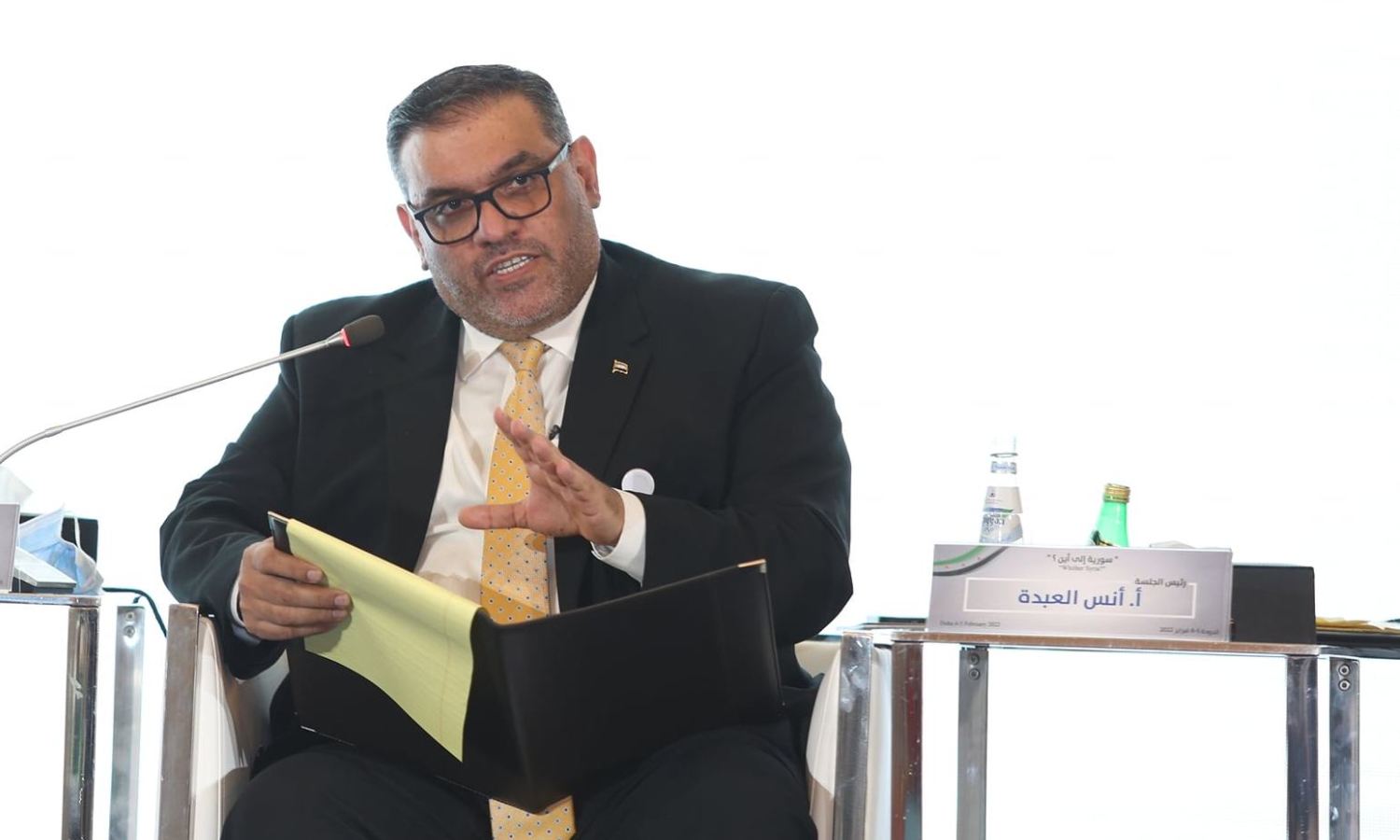



On 9 February, the (opposition) Syrian Negotiation Committee (SNC) rejected the Step-for-Step approach put forward by the UN special envoy to Syria, Geir Pedersen. This came in a statement explaining why it had refused this approach.
Anas al-Abdah, head of the Syrian Negotiation Committee, told Enab Baladi that the most important reason for rejecting the approach was because it was “a deviation from the objectives of the political process, specifically the issue of political transition.”
An important part of the reasons for rejecting the Step-for-Step strategy is the lack of clarity on Pedersen’s proposal, he said. Al-Abdah added that the UN envoy wanted the Syrian opposition to grant him a carte blanche, without getting any guarantee on where it will lead, and how it will end.
Al-Abdah added that the announcement of the opposition’s position on the approach required to study for at least four months, including the collection of information and consultation with Pedersen, various actors in the Syrian issue, and all the different components of the opposition.
According to al-Abdah, Pedersen did not put forward any alternative mechanisms or options that would allow the opposition to choose between them, instead, he was only adhering to the Step-for-Step approach, he said.
The Syrian opposition does not have a clear-cut proposal that would push forward the political negotiation process on Syria.
Al-Abdah said the opposition’s options for Pedersen were to open the rest of the “four baskets” (four issues), to consult on the implementation of UN Resolution 2254, or to consult on the challenges facing the implementation of the resolution, which represents the basic and general framework for the political process.
Al-Abdah believes that the opposition’s perceptions about the future of the negotiating process are a return to the implementation of Resolution 2254. He explained that the second clause of it unambiguously states that the Secretary-General of the United Nations and the Special Envoy to Syria must conduct “urgent” negotiations between the regime and the opposition in order to reach the political transition.
On 3 March 2017, the former UN Special Envoy for Syria, Staffan de Mistura, announced the end of Geneva 4, explaining that the agenda for the fifth round (Geneva 5) will include “four baskets.” The first basket is the establishment of a trustworthy, inclusive, non-sectarian government within six months, and the second basket includes the process of drafting a new constitution within six months as well.
The third basket includes discussing the holding of free and fair elections under UN supervision and it has members of the diaspora from the Syrian community who have the right to vote. The election is supposed to take place after the constitution is drafted, within 18 months.
De Mistura confirmed that there is a “fourth basket” added to the agenda, at the request of the Syrian regime delegation, which is “discussing the strategy to combat terrorism.”
On 29 January 2021, Pedersen told the Asharq al-Awsat newspaper that he has the support of the United Nations Security Council (UNSC) to move forward with the “step-for-step” approach between the parties concerned to identify incremental, reciprocal, mutual, realistic, precise, and verifiable steps that could be taken in parallel towards Resolution 2254.
Pedersen’s approach based on the cornerstone of American-Russian rapprochement on the Syrian file is still in the brainstorming phase requiring additional rounds of consultations, as the rapprochement between the two countries has not begun yet.
This article is translated and edited by The Syrian Observer.
if you think the article contain wrong information or you have additional details Send Correction